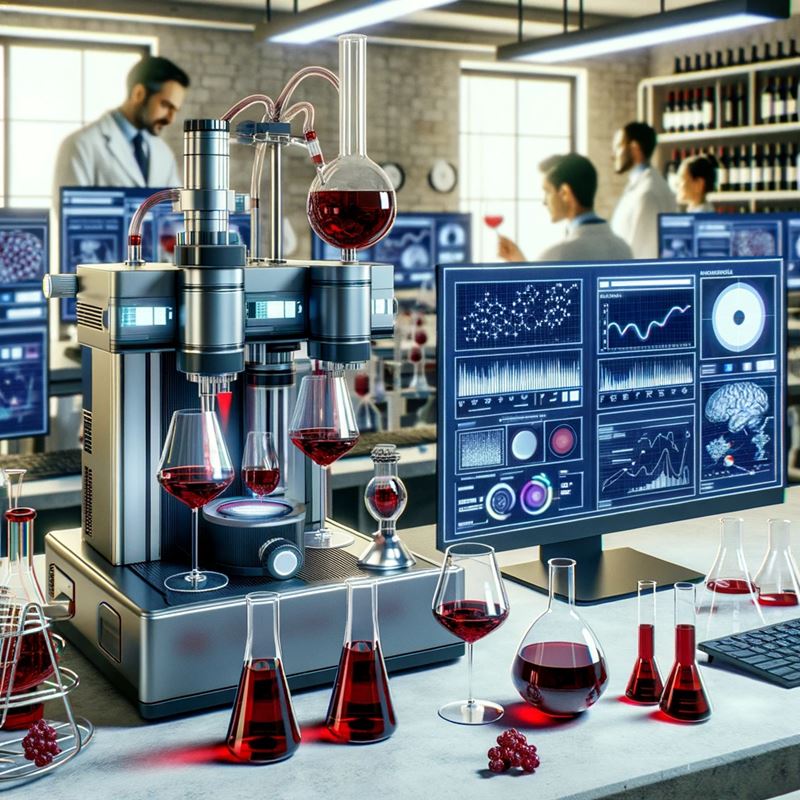How AI is protecting Bordeaux's finest
The rise of AI in Bordeaux wine verification
2024-01-22

In a groundbreaking scientific development, the wine industry, particularly in the Bordeaux region, is poised to experience a significant transformation. Researchers have successfully created an artificial intelligence (AI) system capable of identifying the chemical signature of wines. This novel innovation promises to be a powerful tool in the fight against wine counterfeiting and in supporting winemakers in their craft.
The journey to this achievement began with the application of chromatography, a method for separating the components of a substance. Stéphanie Marchand, a professor and specialist in chemical and sensory analysis at the Institute of Vine and Wine Science in Bordeaux (ISVV), explains this process akin to the separation of ink colors on a wet paper. The same principle was applied to deconstruct the constituents of wine. These data were then sent to a team in Geneva, led by Professor Alexandre Pouget, where they developed an algorithm that facilitated the birth of this AI.
The project involved analyzing data from 80 châteaux in the Bordeaux region, covering vintages from 1990 to 2012. Each bottle was anonymized, identified only by a numerical code, and resembled typical commercial bottles sans labels. Impressively, the AI demonstrated a 100% accuracy rate in determining the terroirs of each bottle. This accomplishment is the culmination of several years of collaborative work among experts.
Despite this success, commercialization of the AI in an application form is not yet planned, as researchers believe they are only at the preliminary stage with much more potential to explore. This AI tool, however, is poised to serve professional bodies by guaranteeing wine authenticity. Moreover, it offers the prospect of aiding vintners in refining their winemaking practices through precision viticulture.
The introduction of this AI raises the question of its impact on the role of oenologists and sommeliers. However, Stéphanie Marchand views this technology not as a replacement but as a complementary tool. While the AI requires five hours to process the data necessary to "taste" a wine, a sommelier can accomplish this in a matter of minutes. Additionally, the AI, despite its capabilities, lacks the essential element of emotion that humans experience while enjoying wine.
This technological advancement heralds a new era in wine authentication and production, blending centuries-old tradition with cutting-edge innovation. As the Bordeaux wine region embraces this AI, it sets a precedent for the global wine industry, where technology and tradition can coexist and enrich one another.
Founded in 2007, Vinetur® is a registered trademark of VGSC S.L. with a long history in the wine industry.
VGSC, S.L. with VAT number B70255591 is a spanish company legally registered in the Commercial Register of the city of Santiago de Compostela, with registration number: Bulletin 181, Reference 356049 in Volume 13, Page 107, Section 6, Sheet 45028, Entry 2.
Email: [email protected]
Headquarters and offices located in Vilagarcia de Arousa, Spain.